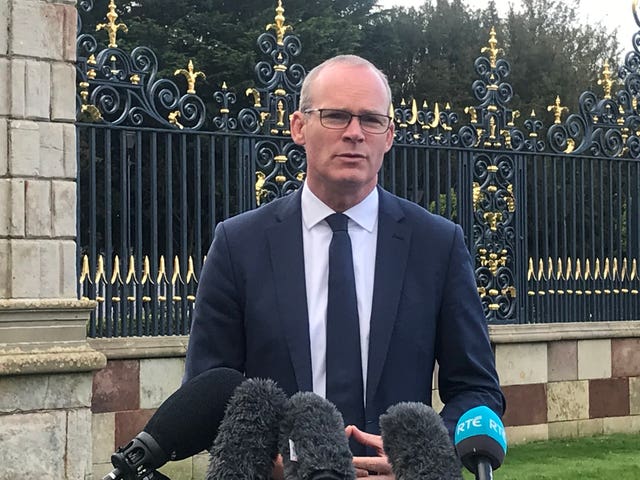Downing Street has declined to recognise a midnight deadline reportedly set by the European Union for a legal text to be presented in order to clinch a Brexit deal.
The EU’s chief negotiator Michel Barnier has warned that he needs good intentions to turn into a legal document as Boris Johnson races against the clock to secure a fresh agreement for the meeting of European leaders starting in Brussels on Thursday.
Barnier, who said work to secure a deal has been “intense” after talks which are understood to have gone on until 11pm on Monday, has reportedly called on the UK to present a legal text by the end of Tuesday.
Asked if he recognises the deadline, the prime minister’s official spokesman said: “We are working hard. The prime minister is aware of the time constraints that we are under.
“We want to make progress towards securing a deal as soon as possible and we want to make progress ahead of the EU council on Thursday.”
Barnier struck a positive note after meeting Brexit secretary Stephen Barclay at the general affairs council on Tuesday morning.
I have just debriefed EU27 Ministers in Luxembourg. 🇪🇺 unity remains strong. We want an agreement that works for everybody: the whole #UK & whole #EU.
On route back to Brussels to take stock w/ my colleagues.
Talks are difficult but I believe an agreement is still possible. pic.twitter.com/FxQHCajg5b
— Michel Barnier (@MichelBarnier) October 15, 2019
Barnier debriefed EU27 ministers in Luxembourg before tweeting: “Talks are difficult but I believe an agreement is still possible.”
Earlier in the morning he said: “Because even if an agreement will be difficult, more and more difficult to be frank, it is still possible this week.”
He added: “Let me add also that it is high time to turn good intentions into a legal text.”
Arriving at the council, Barclay, who also met with Ireland’s deputy premier Simon Coveney, said: “The talks are ongoing. We need to give them space to proceed.
“But detailed conversations are under way and a deal is still very possible.”
The latest comments comments came as negotiators stepped up efforts to work out a way to break the deadlock over the backstop, the contingency measure to prevent a hard border on the island of Ireland.
Irish broadcaster RTE reported that two sources confirmed that British negotiators will bring forward an updated plan on Tuesday to deal with the issue of customs and the border.
Coveney said it was not a time for “optimism or pessimism”, adding: “The negotiating teams have made progress but it’s been slow and they will need to make significant progress today if there is to be a deal that Michel Barnier can report on tomorrow to EU capitals in advance of the leaders’ summit.”
He said it is a matter for the negotiating teams to get the legal text in place, and added: “We are not putting any deadlines on these discussions. It’s possible to move beyond the summit and continue talks next week.”
Meanwhile, Downing Street said Johnson told French president Emmanuel Macron in a phone call that UK officials would “continue to work hard” on securing a Brexit deal.
A cabinet briefing on Brexit was postponed by Johnson as negotiators continue talks to hammer out a new deal ahead of the 31 October deadline.
Tuesday’s planned update to senior ministers was said to have been delayed until Wednesday so he can give more detailed information on efforts to strike a new agreement.
The PM has been under increasing pressure to concede greater ground to Brussels, with reports suggesting the UK has dropped a demand that a deal should include a veto for the Stormont Assembly on customs arrangements.

The two-day EU summit is crucial because the PM must get a new deal approved by MPs by Saturday if he is to avoid a clash over asking for a Brexit delay.
The Benn Act passed by MPs opposed to a no-deal, including Tory rebels, says he must ask for an extension to Article 50 if MPs do not back a deal by then.
There are fears that a loophole could be used to avoid this, with the PM repeatedly ruling out making the extension request under his “do or die” pledge to get Brexit done by the Halloween deadline.
Leader of the commons Jacob Rees-Mogg has suggested the government could use European law to achieve no-deal, while Labour has threatened court action to force the PM to obey the legislation.
Regardless of the outcome in Brussels, a showdown is anticipated in an emergency sitting of parliament on Saturday – the first in 37 years – if MPs approve the unusual move.
They will be able to back or reject any deal presented to them, or there will be discussions on what to do next in the Brexit saga.

















